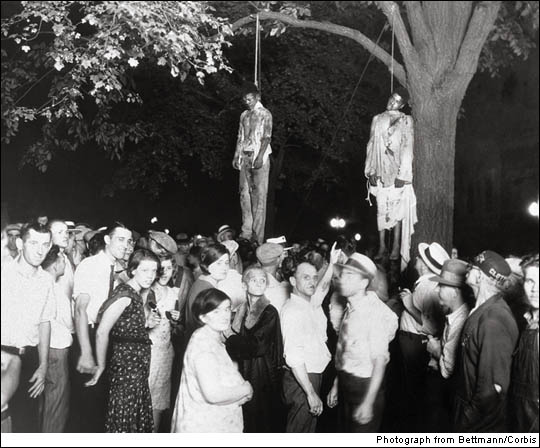I believe this framework for a moral standard (essentially: "Don't hurt people") is found in our biology. Our empathy makes us less prone to hurt others . . . .
That is a vast and dangerous oversimplification.
Homo sapiens is a
pack-social species like gorillas, chimpanzees, wolves/dogs, lions, horses, elephants, dolphins and quite a few other species--mostly predators but a few grazers. This is distinguished from
herd-social, a fairly common instinct in grazing mammals and birds. (And no, I've never had a zoologist give me the scientific nomenclature for these two instincts.)
The difference is that the members of the herd consider each other as anonymous strangers whose company provides a few benefits such as protecting all the children collectively, finding new feeding ground, and improving the odds when attacked by a pack of predators.
Members of a pack (a much smaller community), on the other hand, regard every individual as vital to their own survival. They have known, cared for and depended on each other since birth. Pack-mates often exhibit astounding feats of bravery to protect each other, whereas a herd-mate will run off and let his wounded former colleague distract the predators from following him.
The most crucial difference, however, is that
packs regard each other as hostile competitors for scarce food resources. They love their own, but they hate everyone else. In a bad year when there isn't quite enough food so they start to infringe on each other's territories, there will be fights to the death.
Our species is no exception. Using modern instrumentation to examine fossil skeletons in more detail, anthropologists have discovered that more than 50% of adult humans who died in the Paleolithic Era were killed by violence. In other words,
more people were killed by other people than by all other causes combined.
I have often rambled on about how our massive forebrain allows us to transcend our instincts so we don't behave like cavemen anymore, and I still stand by that. We have managed to expand our own personal definition of our "pack" to include a community so large that it's really a herd: some of our pack-mates are not merely anonymous strangers, but people who live on the other side of the planet and are mere
abstractions to us. (For example, posts on an internet board.)
But... sometimes our inner caveman bursts free and engages in some Paleolithic behavior. He loves his family and close friends so he probably won't hurt them, but he still has a gnawing suspicion that
everyone else is a hated competitor for scarce resources, or at best somebody not worth caring about so it's okay to knock him down or take his stuff.
To summarize: our instincts do NOT tell us "Don't hurt people." They tell us "Don't hurt our pack-mates." It's up to our elders and our social institutions to help us define our "pack" with as large a scope as possible.
My parents taught me something that was astoundingly unusual in the 1940s, for which I will always be grateful. They taught me by example that people who don't look like me are just as worthy of courtesy and caring as everyone else. I never understood racism, and I always thought people with foreign accents and strange clothing were really interesting and I wanted to get to know them.
So when I look out at this planet I see one single pack. Everyone is my brother. Sure, there are people who do bad stuff so it's okay to hate
them, but not their whole family, their whole community, their whole country, or their whole ethnic group. I want all those people to feel the same way about me as I do about them.
Can't we all be pack-mates?
. . . . and is why those lacking empathy (sociopaths, psychopaths) not only very much want to hurt others, but can't understand why such behavior is considered wrong. Intellectually, they can, but not fundamentally.
I'm not clear on whether sociopaths have no empathy for their own family members. If they do, then they may simply be throwbacks to the pre-agricultural Stone Age, when the only people you could trust were the ones you had depended on and cared for since birth.
These people (the mob) think they're in the right because their god commands exactly what they just did. They have the warrant in the text. They believe they serve a greater good when they kill someone for such a thing, but we know they're mistaken.
My primary criticism of the Abrahamic religions is that they reinforce our Stone Age tribal instincts. They teach their followers that they're just a little bit better than everyone else, so it's not necessary to treat them with the same fairness they're expected to give each other. Sure, some of them have gotten over that, and some exhibit it merely by voting against our customs and traditions. But many exhibit it by using any opportunity to kill us as "heathens" and "infidels" whose goal is to seduce the weak and gullible within their own communities into adopting our evil ways.

